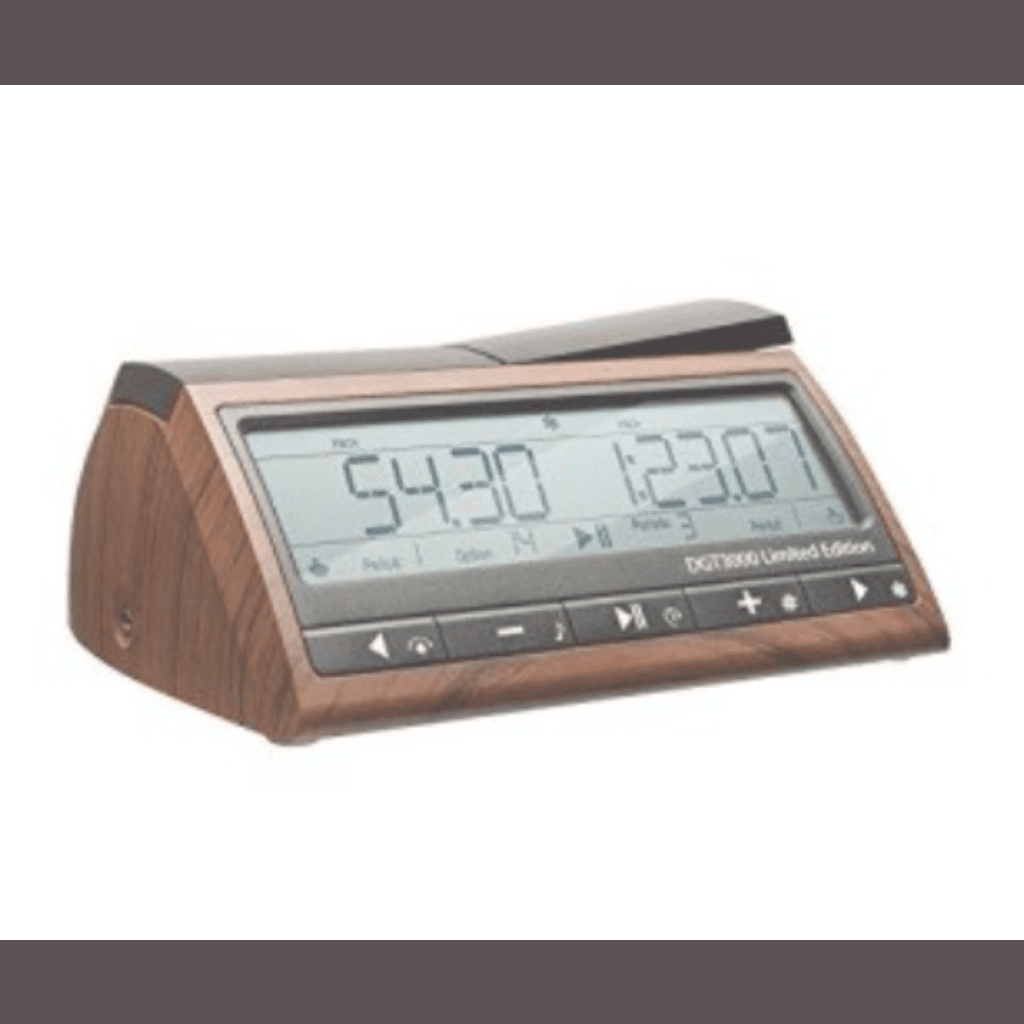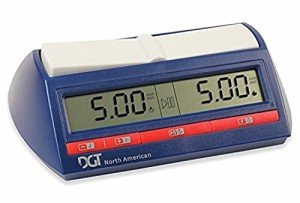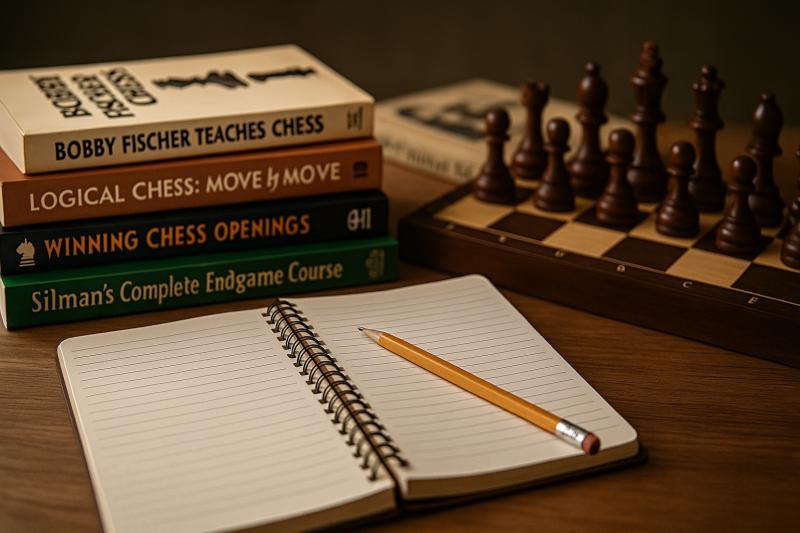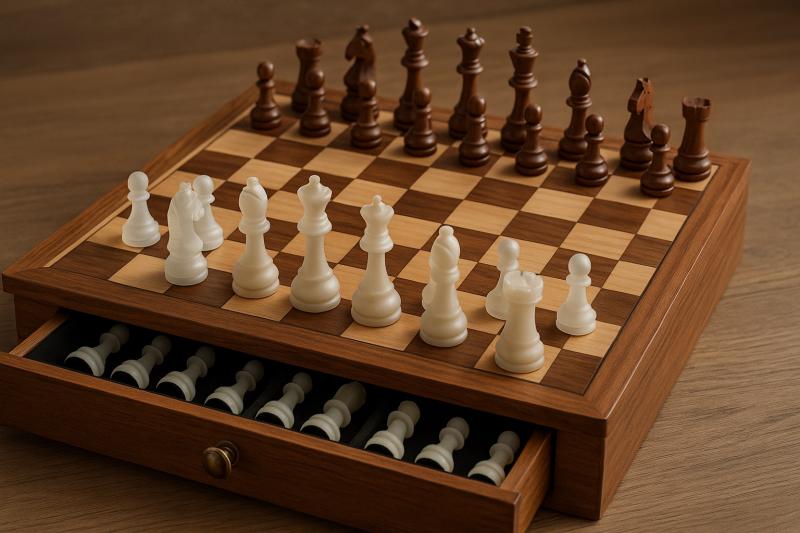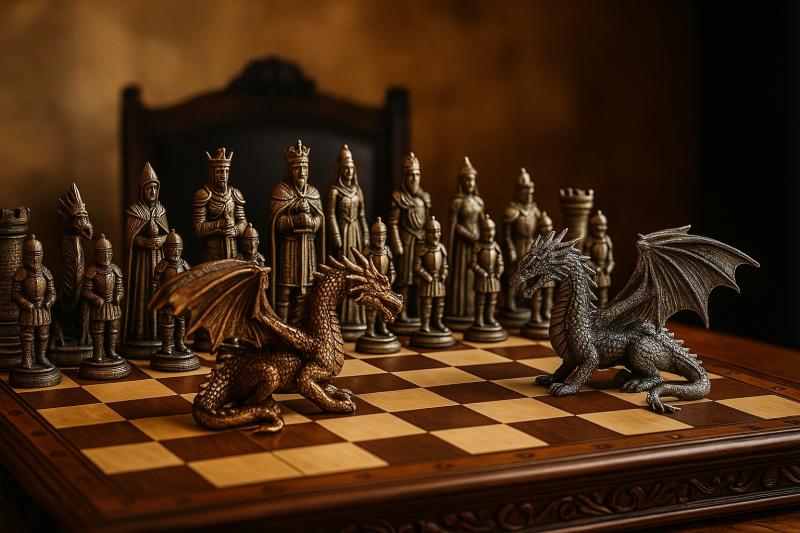Why Chess Clocks Matter
You don’t have to be a grandmaster to enjoy using a chess clock. In fact, once you try one, you might wonder how you ever played without it. Whether you're getting into faster-paced blitz games, keeping kids focused on their moves, or just adding a little structure to your Sunday matches, a chess clock can quietly change the rhythm of your game — for the better. At ChessKitty, we believe good gear should feel natural, not intimidating. So in this guide, we’ll walk you through the different types of chess clocks, what features to look for, and how to find one that fits your playing style (and your table).
🕰️ Analog Chess Clocks (see example)
Old-school charm with a ticking heart. Analog clocks use traditional clock faces and mechanical buttons. They don’t require batteries, which makes them reliable and simple — though less precise when it comes to time increments. They're perfect for casual games and collectors who love the classic look.
Best for: traditionalists, casual home play, vintage vibes
📟 Digital Chess Clocks (see example)
The go-to choice for modern play. Digital clocks offer precise timing, including settings for delay and increment, which are now standard in most tournaments and online games. Many models are easy to program and read, with large displays and responsive buttons.
Best for: tournaments, online training, blitz/bullet fans
📱 Chess Clock Apps
Perfect for beginners or on-the-go players. There are plenty of free chess clock apps for phones and tablets. They're a great way to try out timed games before investing in a physical clock, though they lack the tactile feel of a real one.
Best for: trying things out, casual games at the park or café
You don’t have to spend much to start using a clock, and there’s something satisfying about pressing that button — whether it’s made of plastic, metal, or just a virtual tap on your screen.
🧠 Key Features to Consider
Not all chess clocks are created equal — and depending on how you play, certain features will matter more than others. Here’s what to look for when choosing a clock that feels good to use and fits your setup.
⏳ Increment vs Delay — What's the Difference?
-
Increment adds a few seconds to your time after each move — common in online chess (e.g. “5 + 3” means 5 minutes with 3 seconds added per move).
-
Delay waits a few seconds before your clock starts counting down, giving you breathing room on each move.
If you're used to online platforms like Chess.com or Lichess, go for a clock that supports increment — it's more familiar.
👁️🗨️ Display Clarity
Look for large, easy-to-read digits — especially if you play across the table or under low lighting. Backlit or high-contrast screens help, and some models even include a sound alert when time runs out.
🖱️ Button Feel (Yes, It Matters)
Some clocks have soft, silent buttons. Others have a more tactile “click.” There’s no right answer — it’s personal preference. If you play a lot of fast games (blitz or bullet), responsive buttons can make a difference.
🔋 Battery vs Rechargeable
Most digital clocks run on AA or AAA batteries. A few newer models are rechargeable via USB. Analog clocks, of course, don’t need power at all — great if you want simplicity.
🔈 Sound Options
Some clocks beep, some are totally silent. If you’re playing with kids, teaching, or playing in a quiet space, silent operation might be best.
You don’t need all the bells and whistles. Just pick the features that make your games more comfortable — and fun.
🏆 Top Chess Clocks by Use Case
To save you some scrolling (and second-guessing), here’s a selection of well-reviewed chess clocks that fit different playing styles and budgets. Whether you're buying your first clock or upgrading your setup, these are great options to consider.
| Clock | Best For | Why We Like It | Buy Link |
|---|---|---|---|
| DGT North American | Tournament & online-style play | Trusted classic with delay & increment modes. Clear display, intuitive buttons. | View on Amazon |
| ZMart Fun II | Blitz & bullet fans | Ultra-bright LED display, heavy-duty build, great for speed play. | View on Amazon |
| BHB Analog Clock | Traditionalists | Mechanical, no batteries, vintage charm. Smooth buttons and clean layout. | View on Amazon |
| LEAP PQ9907 | Beginners & budget-friendly | Simple setup, compact, and affordable digital option. Great starter clock. | View on Amazon |
| Lichess App (Free) | Casual games & trying time control | Easy to use on your phone, free, and great for testing out different time settings. | Try the App |
What Does DGT Mean?
DGT stands for Digital Game Technology, a Dutch company known for making some of the most reliable digital chess clocks and electronic boards in the world. Their clocks are used in official FIDE tournaments and trusted by clubs, coaches, and players globally. If you’re looking for tournament-level quality, a DGT clock is a solid choice.DGT North American Chess Clock and Timer
Stay on top of your game with this reliable and easy-to-use chess clock designed for players of all levels
Product information
$55.15
Product Review Score
4.19 out of 5 stars
153 reviewsProduct links
🎯 Finding the Right Chess Clock for Your Style
Adding a chess clock to your setup doesn’t have to be intimidating — or expensive. Whether you’re training for tournaments, keeping casual games moving, or just trying something new, the right clock can add structure and rhythm to your matches. From simple analog styles to programmable digital models, there’s a clock out there that fits your pace (and your personality).
At ChessKitty, we’re here to help you make sense of the options — and enjoy the game, your way.
🛍️ 🕰 Browse Our Handpicked Chess Clocks
From classic designs to digital tournament essentials, we’ve selected chess clocks for every kind of player and every kind of budget.
👉 Explore Chess Clocks →
These links may be affiliate links — which means we may earn a small commission if you choose to buy, at no extra cost to you. We only recommend clocks we truly believe are worth your time.
